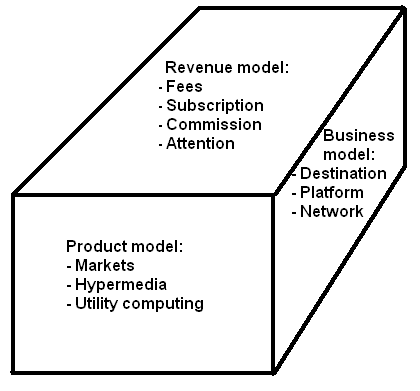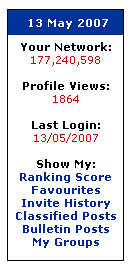The invention of hypertext has been the most revolutionary thing since two previous technologies before: the printing press and the alphabet. Combined with computing and the Internet, we have seen a new world represented by the World Wide Web that has transformed entire industries in its mere 19 15 year existence.
The web caught our imagination in the nineties, which became the Dot-Com bubble. Several years after the bust, optimism reawakened when the Google machine listed on the stock exchange – heralding a new era dubbed “web2.0”. This era has now been recognised in the mainstream, elevated by the mass adoption of the social computing services, and has once again seen the web transform traditional ideas and generate excitement.

The web2.0 era is far from over – the recent global recession however has flagged though that the pioneers of the industry are looking for something new. As the mainstream is rejuvenated by web2.0 like the Valley was not that long ago, it’s time to now look for what the next big thing will be. Innovation on the web is apparently flattening. Perhaps it has – but the seeds of the next generation of innovation on the web are already here.
Controversy of the meaning of web2.0 – and what its successor will be – should not distract us. We are seeing the web and associated technologies evolve to new heights. So the question is not when web2.0 ends, but what are we seeing now, that will dominate in the future?
My view:
• The mobile web. The mobile phone is now evolving into a generic entertainment device, becoming a new computing device that extends the reach of the internet. First with the desktop computer, and then with the laptop computer – new opportunities presented themselves in the way we could use computers. The use of this new computing platform will create new opportunities that we have only scratched the surface.
• The 3D web. Visit second life, the virtual world, as you quickly note the main driver of activity is sex and that it’s just a game. However, porn and games have spearheaded a lot of the innovation of technology in the past. The 3D web is now emerging with four separate but related trends: virtual worlds, mirror worlds, augmented reality and lifelogging.
• The data web. Data has now become a focus in the industry. The semantic web, eventually, will allow a weak form of artificial intelligence that will allow computer agents to work in an automated fashion. Vendor Relationship Management is changing the fundamental assumptions of advertising, with a new way of how we transact in our world. Those trends, when combined with the drive for portability of peoples data, is having us see the web in a new light with new potential. Not as a collection of documents, and not as a platform for computing, but as a database that can be queried.
So to get some discussion, I thought I might ping some smart people I know in the industry on what they think: Chris Saad, Daniela Barbosa, Ben Metcalfe, Ross Dawson, Mick Liubinskas, Randal Leeb-du Toit, Stewart Mader, Tim Bull, Seth Yates, Richard Giles as well as you reading this now.
What do you think is currently in the landscape that will dominate the next generation of the web?




